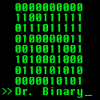Okay. Ten years ago, I was in almost exactly the same situation. I didn't study in the USA, but in Germany (Heidelberg), the regulations were a bit different, and I'm not formally diagnosed with math disability. I don't think I'm suffering from it in a medical sense, and actually, I somewhat doubt that you really do. Also, it wasn't my third college / attempt at getting a degree, but my first one. Everything else sounds extremely familiar to me:
-
B.Sc. Applied Computer Science
-
Mandatory Calculus 1 and 2 courses
-
No possibility to replace them with alternative courses
-
Me being really, really bad at it, while being good to very good at almost all other courses (actually, I was often best or close to best of the class in other courses, I don't want to brag, just highlight the extremeness of the situation) .
-
Spending the vast majority of my study time with learning math, especially calculus, trying to solve homework exercises the whole day long, every day, effectively having no free time for a few years, at least not without guilty conscience. I never counted the hours I spent with math, but subjectively, I think it was over 80% of my study time. I could do all of the excersises for all of the other courses I did at the same time (usually between two and four) in much less time than those for Calculus 1/2 alone.
-
Suffering from severe doubts that I'll ever make it through it and get my degree
In the end, I did, and graduated with a 1.5 / "very good" grade (1.0 is best possible, 4.0 is the worst that still counts as passed, below means failure). It took me much longer than officially intended, but I did it.
And to make this clear: I didn't study so freaking hard only because of unfounded fear of failure, and then in the end "surprisingly" got out of it with top grades, like it often happens ;). Especially in calculus 2, I was really bad and just barely passed it with a 4.0. And even this only after I had spent a full semester doing only the calculus 2 lecture, after several failed or canceled attempts, and after I had already completed all other courses I needed for the degree (we were allowed to do our courses in any order we wanted). Calculus 1 was somewhat better, but there, too, I needed two attempts.
And after I had finally finished the B.Sc., I did my M.Sc. degree, which, fortunately, was free of any obligatory math courses. Ironically, I finished the M.Sc. with a slightly lower final grade than the B.Sc., even though it was a lot easier.
Math is hard, and Calculus is especially hard for most people, you're far from alone with that. Actually, I seriously believe that university level calculus is, for most people, one of the most intellectually challenging things that exist in the world, only surpassed by even harder math and physics topics. Without true passion for it, it is extremely hard to be successful in these things.
The good thing is, unless you're explicitly applying for a job that involves hardcore math, you'll never need it again in your whole life. Probably more than 99% of all software development jobs, including very well-paid ones, can be done easily without that stuff. I never needed it again, and I probably only remember maybe 5% of it (very rough estimate). If I had to do a first semester calculus 1 homework sheet now, I'd most probably be unable to solve even the easiest exercise on it, at least not without reading up on a lot of stuff again.
This, of course, opens up the question why it's so important at university in the first place, and there are probably two main answers for that: First, they use it to test the student's perseverance. Second, it's probably somewhat more important for academic careers (even in computer science), towards which university education still aims to some degree, even if most graduates take jobs in the industry.
So, my recommendation to you is the same as Tom's: Sit your ass down and "science the shit out of this" (Mark Watney, "The Martian"). If I somehow managed to do this, you, very likely, can do it, too. Maybe you have zero interest in it (like me), maybe your mind isn't made for it (like mine and most other people's). Without knowing you, I believe that you are one of the smarter students at your college (call it "benefit of doubt" if you like). And since even the most difficult courses are usually still designed in a way that smart people can somehow pass them, I believe that you can do it, too. And in case you really finally fail with no further attempts or alternatives left, you can still do something else.
If you want to be a software developer - as I already mentioned, you can totally be that without calculus skills. However, at least for the better jobs, it's probably easier to get them with an academic degree in your pocket. So, you could try study something/somewhere where calculus is not (or at least less) involved. Or try to work your way up without a degree. Probably harder, but not impossible, especially not in today's IT world, where so much programmers are currently needed that even my proverbial grandmother (not the real one) learns coding now. But, please, first try to pass calculus with all your power!
Good luck!






